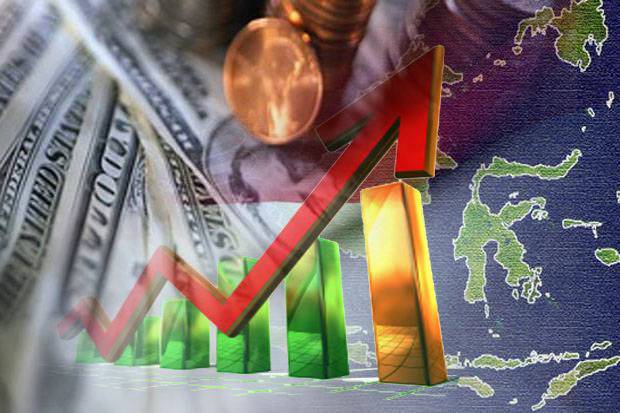Indonesian Debt in the Jokowi Era Still Relatively Safe
By: Didi Permadi *
President Joko Widodo and Vice President Jusuf Kalla were considered leaders who dared to take debt both through loans and issuance of Government Securities (SBN). During the four years leading Indonesia, President Jokowi and Vice President JK have taken debts of Rp 1,814.66 trillion. The ratio of government debt to Gross Domestic Product (GDP) is around 30 percent, up from 24.7 percent in 2014. However, based on the State Finance Law, the ratio of debt to GDP is 60 percent. This indicates that the condition of our country’s debt is still relatively safe. Compared to other countries, Indonesia’s economic strength is still stable and under control. In America, the debt to GDP ratio is 105 percent, even in Japan the debt to GDP ratio reaches 253 percent.
In recent years Indonesia’s debt has been more concerned with local funds than foreign funds. This is part of a strategy to reduce the risk of weak rupiah exchange rates and global economic instability. If observed, this strategy can be directly seen from the increased use of rupiah-denominated debt issued domestically. Based on statistics from Bank Indonesia, it shows that there has been a decline in the proportion of foreign loans from 78 percent to 30 percent in 2008 to 2017.
President Joko Widodo’s era debt management is better than the era of President Susilo Bambang Yudhoyono (SBY). The debt addition in 2019 which is included in the State Budget is Rp. 359.3 trillion, less than 2018 which reached Rp. 387.4 trillion, where the amount is still better than the previous administration era. Although in nominal terms it looks big, but in terms of utilization it is also greater.
On the other hand, in addition to knowing the condition of the country’s debt, the community also needs to understand the use and direction of the purpose of the loan money. In the era of President Joko Widodo’s leadership, the government budget was prioritized to carry out infrastructure development as the main program. Large projects such as toll roads, airports, fast trains, toll roads, dams, hydropower, and others have been successfully built with a period of 4 years. Although budget spending has increased fourfold from the previous government to US $ 10 billion, there is clearly a result that can be seen in plain view and the benefits felt for the people of Indonesia. So it has been confirmed, the government is actually building and continuing to build infrastructure in a number of regions.
In addition to infrastructure, the education and health sectors are also the government’s main priorities. President Joko Widodo also allocated 20 percent of the budget for education, including preparing postgraduate scholarship programs. Meanwhile, the National Health Insurance (JKN) as a health program has targeted more than 70 percent of Indonesia’s population and the budget continues to increase. This JKN program is also the government’s target in ensuring public health in 2019.
Data from the Ministry of Finance, education, health and infrastructure increased by 11 percent, 54 percent and 118 percent. The government budget strategy is considered to have increased productivity and living standards which in the long run will experience growth. This productivity is also determined by infrastructure growth and the quality of human resources. By allocating a large portion of the budget for this matter, Indonesia is on the path of increasing productivity, which triggers economic growth and will lead to an improved debt position.
But on the other hand, the existence of parties with certain interests often brings Indonesia’s debt problems as an economic issue to corner the government regime of Joko Widodo and scare the people. Thus, the need for understanding for the wider community that Indonesia’s debt to GDP ratio is still within a controllable limit. This is due to government efforts that continue to bring this country to a better direction, one of which is managing the country’s debt properly for the sake of development and the welfare of its people.
As a developing country, Indonesian people do not need to be anti-state debt because every country needs it. However, what needs to be seen is the productivity of the use of debt in reducing social inequality and improving people’s welfare. Like proverbs, assembling upstream swimming later, getting sick before having fun then, that’s how Joko Widodo uses state debt so that in the future there will be a better economy.
* The author is a Student of Stiepar Yapari Bandung
